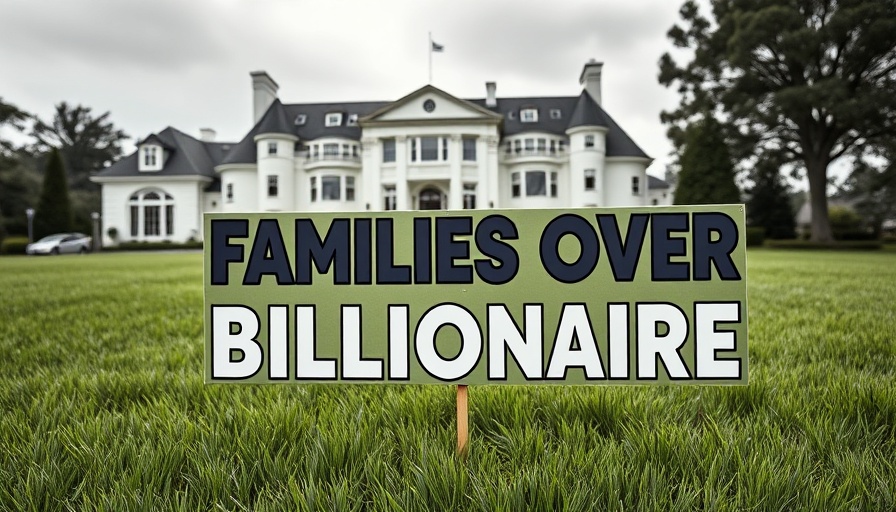
The Real Faces Behind Anti-Trump Movements
As America continues to grapple with the political aftermath of Donald Trump’s tenure, a new wave of anti-Trump groups has emerged, projecting themselves as the voice of the common people. One such group, Families Over Billionaires, claims to champion everyday Americans against tax breaks for the wealthy. Yet, upon deeper examination, these groups are often anything but grassroots, revealing a complex web of funding from ultra-wealthy backers.
In the wake of Trump’s inauguration, a coalition of former Biden and Harris aides launched Families Over Billionaires, effectively amassing an impressive eight-figure war chest for what they call grassroots advocacy. Mia Ehrenberg, a spokesperson for the group, emphasizes the organization's intent to amplify the voices of ordinary Americans who wish to oppose excessive tax advantages for the elite. However, the reality paints a starkly different picture.
The Dark Money Trail
At the core of these so-called grassroots campaigns lies a significant reliance on dark money channels, a reality that many voters may not realize. Groups like Families Over Billionaires are funded largely by Arabella Advisors, a consulting firm known for facilitating a dark money network heavily supported by affluent donors who align with the Democratic Party. This overlap illustrates how political strategies are often financially supported by billionaires rather than the average voter.
The relationship between these groups and their funders raises critical questions about the influence of wealth in politics. With approximately 8.5 percent of total campaign contributions in the latest election cycle coming from just a handful of ultra-wealthy individuals, as noted in research surrounding campaign financing, it is evident that money serves as a formidable form of political power.
Ultra-Wealthy Donors Changing the Game
This dynamic doesn't just highlight the strategies of groups opposing Trump, but also emphasizes a broader trend observed in election cycles — the increasing role of ultra-wealthy donors in shaping political narratives. As philanthropic efforts blend with political contributions, the leading figures in campaign financing often do not represent mainstream voter concerns. For instance, megadonors like Ken Griffin and Michael Bloomberg contribute vast sums not just to support candidates but to influence policy agendas directly.
By backing movements that project a populist façade while secretly funneling substantial resources into the political arena, wealthy sponsors are reshaping the electoral landscape to mirror their values and interests. These dynamics can lead to a disconnect between the priorities of affluent donors and those of everyday citizens, who may feel increasingly alienated by a political system that seems skewed in favor of the rich.
Impacts on Voter Sentiment
The implications of high-dollar funding for anti-Trump initiatives extend beyond simply the mechanics of campaign finance. As these groups gain momentum and visibility, they have the power to sway public opinion and mobilize voters, often framing their messages in ways that resonate with broader societal concerns. Yet, critics of these strategies argue that they subtly perpetuate an oligarchic class's influence over democratic processes.
Understanding this intricate relationship between ultra-wealthy donors and political movements is essential to deciphering the current political climate. As the layers of simulation and illusion in these campaigns peel back, voters may find themselves questioning the integrity and authenticity of the entities that claim to speak on their behalf.
Future Trends in Political Giving
As we look ahead to future elections, the implications for both Democratic and Republican strategies become apparent. Increased scrutiny over dark money channels may result in a push for enhanced transparency around funding sources. Meanwhile, wealthy individuals who make political contributions must grapple with the duality of philanthropy and political power—balancing their charitable aspirations with the impact of their political financing.
Ultimately, the ongoing evolution of money in politics raises essential questions about who gets to shape the policies that govern society. As elite donors continue to exert influence, it becomes vital for regular voters to remain vigilant and engaged in the political discourse—ensuring their own voices are not drowned out by the interests of the few.
 Add Row
Add Row  Add
Add 




Write A Comment